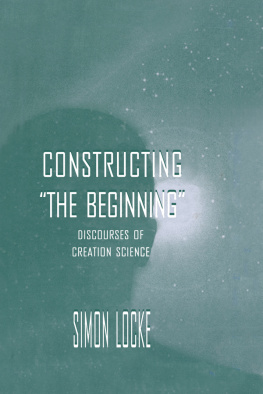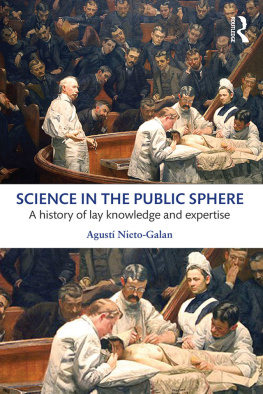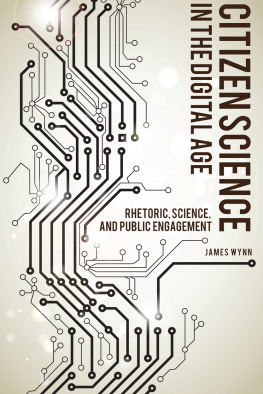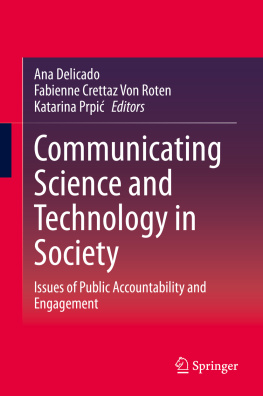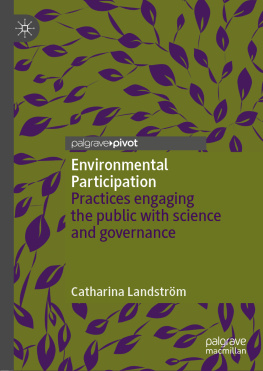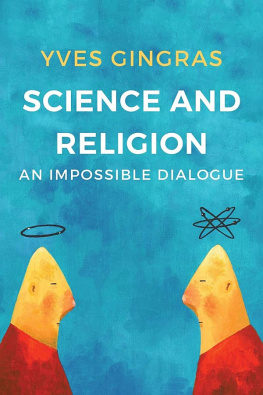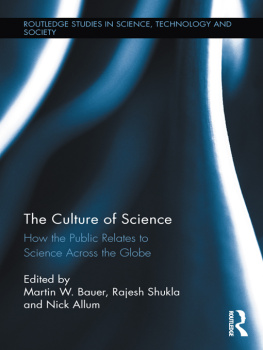Acknowledgements
Most of the material in this book has not appeared anywhere before, although some of the ideas and arguments have been aired in a variety of contexts before their specific formulation here. Particular acknowledgement needs to be given regarding , the central argument of which, although not the detailed development was published as Conspiracy culture, blame culture, and rationalisation, Sociological Review, 57(4), 2009, 567-85.
Thanks are due to Mike Hawkins for reading the draft and providing helpful comments and valuable discussion. Unpersuaded by the overall argument, I am nonetheless pleased to report that Mike has since become, as he put it, enchanted by the fact that [his] whole existence comprises an incomplete syllogism. Welcome to the club, Mike! Now you can refuse to join.
Thanks and a great deal more are owed to Lorraine Allibone, who read and commented on parts of the draft, but more importantly provided unwavering support and encouragement throughout the period of writing, enduring labyrinthine expositions as I fumbled my way towards coherence or as near as I can hope to get anyway!
Support of a more directly material form was provided by colleagues in the Sociology and Criminology Subject Group at Kingston University, who allowed me the relative luxury of a semesters sabbatical to complete the drafting of the manuscript. In these straitened times in the academy, it is heartening to think that there are still some who try to lift their gaze, if not quite to the stars, then at least a little above the bottom-line.
Thanks also to Neil Jordan at Ashgate for supporting the original proposal despite some unfavourable opinion and dealing with my queries with impressive efficiency and professionalism.
Bibliography
Aaronovitch, D. 2009. Voodoo Histories: The Role of the Conspiracy Theory in Shaping Modern History. London: Jonathan Cape.
Abercrombie, N., Baker, J., Brett, S. and Foster, J. 1970. Superstition and religion: the God of the gaps, in A Sociological Yearbook of Religion in Britain 3, edited by D. Martin and M. Hill. London: SCM, 93-129.
Abercrombie, N., Hill, S. and Turner, B.S. 1980. The Dominant Ideology Thesis. London: Allen and Unwin.
Adorno, T. 1991. The Culture Industry: Selected Essays on Mass Culture. London: Routledge.
Aldiss, B.W. 1986. Trillion Year Spree: The History of Science Fiction. London: Victor Gollancz.
Althusser, L. 1971. Lenin and Philosophy and Other Essays, translated by B. Brewster. London: New Left Books.
Amsler, S. 2007. Knowledge, freedom and post-Soviet imperialism: the case of social science in Kyrgyzstan, in Theorising Social Change in Post-Soviet Countries: Critical Approaches, edited by B. Sanghera, S. Amsler and T. Yarkova. Bern: Peter Lang, 171-98.
Anon. 2007. FTs opinion. Fortean Times, 227, September, 73.
Aristotle. 1946. The Works of Aristotle Translated into English: Volume XI. Rhetorica, translated by W.R. Roberts. London: Oxford University Press.
Aronowitz, S. 1988. Science as Power: Discourse and Ideology in Modern Society. London: Macmillan.
Ashmore, M. 1989. The Reflexive Thesis: Wrighting Sociology of Scientific Knowledge. Chicago: University of Chicago Press.
Ashmore, M., Myers, G. and Potter, J. 1995. Discourse, rhetoric, reflexivity: seven days in the library, in Handbook of Science and Technology Studies, edited by S. Jasanoff et al. London: Sage, 321-42.
Ashton, W. 2009. Ouija. Fortean Times, 254, October, 74.
Atack, J. 1990. A Piece of Blue Sky: Scientology, Dianetics and L. Ron Hubbard Exposed. New York: Carol Publishing Group.
Atkinson, P. and Housley, M. 2003. Interactionism. London: Sage.
Bainbridge, W.S. 1986. Dimensions of Science Fiction. Cambridge, MA: Harvard University Press.
Baker, C. 2000. Locating culture in action: membership categorisation in texts and talk, in Culture and Text: Discourse and Methodology in Social Research and Cultural Studies, edited by A. Lee and C. Poynton. London: Allen and Unwin, 99-113.
Bakhtin, M. 1981. The Dialogic Imagination: Four Essays, translated by C. Emerson and M. Holquist. Austin: University of Texas Press.
Barker, C. 2008. Cultural Studies: Theory and Practice. 3rd Edition. London: Sage.
Barker, M. 1984. A Haunt of Fears: The Strange History of the British Horror Comics Campaign. London: Pluto.
Barker, M. 1989. Comics: Ideology, Power and the Critics. Manchester: Manchester University Press.
Barker, M. 1993. Seeing how far you can see: on being a fan of 2000 AD, in Reading Audiences: Young People and the Media, edited by D. Buckingham. Manchester: Manchester University Press, 159-83.
Barker, M. 1997. Taking the extreme case: understanding a fascist fan of Judge Dredd, in Trash Aesthetics: Popular Culture and its Audience, edited by D. Cartmell et al. London: Pluto, 14-30.
Barker, M. and Brooks, K. 1998. Knowing Audiences: Judge Dredd, its Friends, Fans and Foes. Luton: University of Luton Press.
Barkun, M. 2003. A Culture of Conspiracy: Apocalyptic Visions in Contemporary America. Berkeley: University of California Press.
Barnes, B. 1974. Scientific Knowledge and Sociological Theory. London: Routledge and Kegan Paul.
Barnes, B. 1977. Interests and the Growth of Knowledge. London: Routledge and Kegan Paul.
Barnes, B. and Bloor, D. 1982. Relativism, rationalism and the sociology of knowledge, in Rationality and Relativism, edited by M. Hollis and S. Lukes. Oxford: Basil Blackwell, 21-47.
Barnes, B., Bloor, D. and Henry, J. 1996. Scientific Knowledge: A Sociological Analysis. London: Athlone.
Barnes, B. and Edge, D. (eds) 1982. Science in Context: Readings in the Sociology of Science. Milton Keynes: Open University Press.
Barnes, B. and Shapin, S. (eds) 1979. Natural Order: Historical Studies of Scientific Culture. London: Sage.
Bartholomew, R. and Evans, H. 2005. The Martians are coming. Fortean Times 199, August, 42-47.
Basalla, G. 1976. Pop science: the depiction of science in popular culture, in Science and its Public: The Changing Relationship, edited by G. Holton and W.A. Blanpied. Dordrecht-Holland: D. Reidel, 261-78.
Baudrillard, J. 1998. The Consumer Society: Myths and Structures. London: Sage.
Bazerman, C. 1981. What written knowledge does: three examples of academic discourse. Philosophy of the Social Sciences, 11, 361-87.
Bazerman, C. 1987. Codifying the social scientific style: the APA Publication Manual as a behaviorist rhetoric, in The Rhetoric of the Human Sciences: Language and Argument in Scholarship and Public Affairs, edited by J.S. Nelson, A. Megill and D.N. McCloskey. Madison, WI: University of Wisconsin Press, 125-44.
Bazerman, C. 1988. Shaping Written Knowledge. Madison, WI: University of Wisconsin Press.
Bazerman, C. 1997. Reporting the experiment: the changing account of scientific doings in the philosophical transactions of the Royal Society, 1665-1800, in Landmark Essays on Rhetoric of Science: Case Studies, edited by R.A. Harris. Mahwah, NJ: Lawrence Erlbaum Associates, 169-86.
Beck, U. 1992. Risk Society: Towards a New Modernity, translated by M. Ritter. London: Sage.
Beer, G. and Martins, H. 1990. Introduction. History of the Human Sciences, 3, 163-75.
Begg, P., Fido, M. and Skinner, K. 1991. The Jack the Ripper A to Z. London: Headline.
Bell, D. 1976. The Cultural Contradictions of Capitalism


